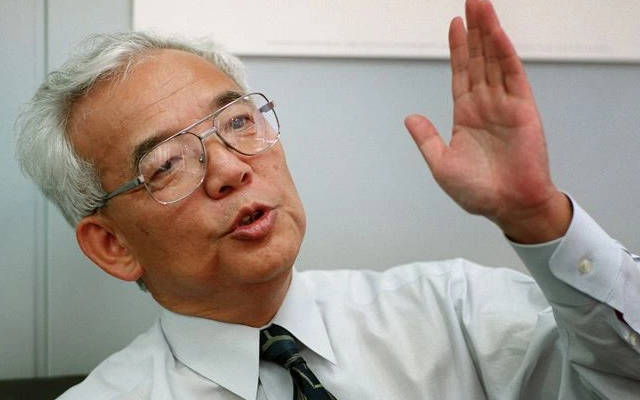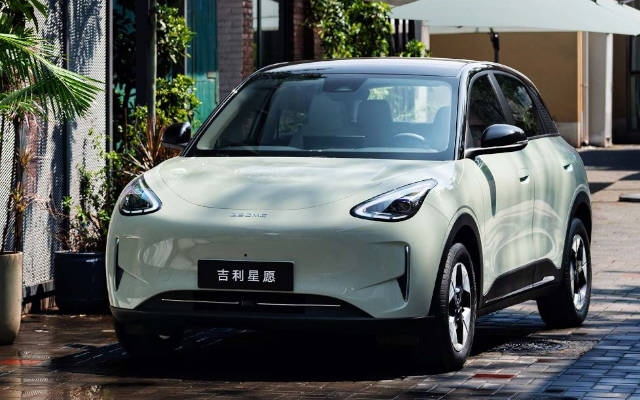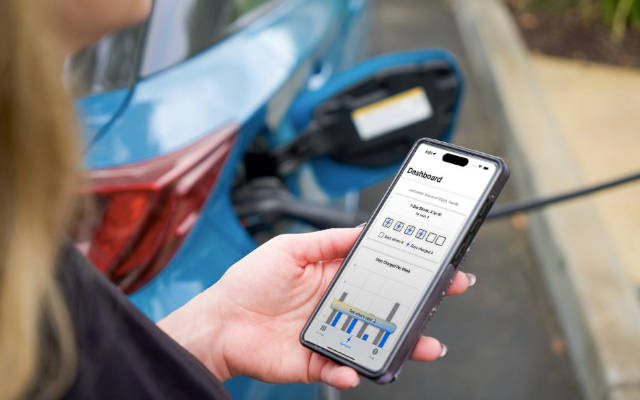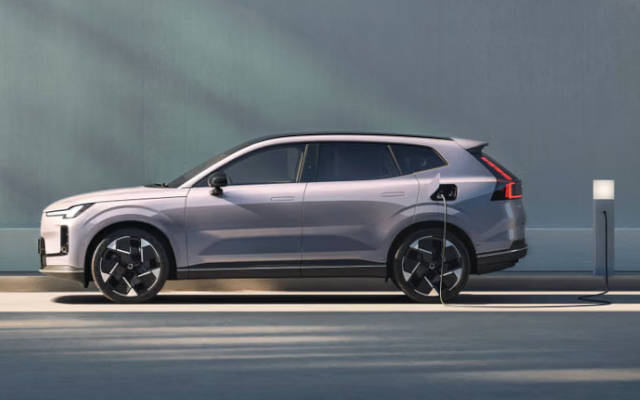 EDITOR'S PICK
EDITOR'S PICK
5 Forecasts Early Climate Models Got RIght
18 Sep 2025 | Synopsis
 Early climate models from the 1960s accurately predicted key warming patterns - Arctic amplification, faster land heating, and nighttime temperature rise. Developed by pioneers like Syukuro Manabe, these models proved surprisingly robust. Their success boosts confidence in today's forecasts, which warn of accelerating disruption. What's worrying isn't just the warming - it's how fast it's unfolding, with risks to ecosystems, infrastructure, and global stability.
Early climate models from the 1960s accurately predicted key warming patterns - Arctic amplification, faster land heating, and nighttime temperature rise. Developed by pioneers like Syukuro Manabe, these models proved surprisingly robust. Their success boosts confidence in today's forecasts, which warn of accelerating disruption. What's worrying isn't just the warming - it's how fast it's unfolding, with risks to ecosystems, infrastructure, and global stability.That $1-trillion Tesla Pay Package For Elon Musk Isn't As Bad As You Think. It's Worse
18 Sep 2025 | Synopsis
 Tesla's proposed $1 trillion pay package for Elon Musk ties rewards to extreme goals like an $8.5 trillion market cap and mass deployment of robotaxis and humanoid bots. Critics say it's not just excessive—it's structurally reckless, concentrating power without time-commitment safeguards and risking distorted priorities. The LATimes argues this isn't bold innovation, but a governance failure with long-term risks to shareholders and corporate accountability.
Tesla's proposed $1 trillion pay package for Elon Musk ties rewards to extreme goals like an $8.5 trillion market cap and mass deployment of robotaxis and humanoid bots. Critics say it's not just excessive—it's structurally reckless, concentrating power without time-commitment safeguards and risking distorted priorities. The LATimes argues this isn't bold innovation, but a governance failure with long-term risks to shareholders and corporate accountability.The EV You've Never Heard Of That Outsold Tesla
18 Sep 2025 | Synopsis
 Geely's Geome Xingyuan, a compact EV hatchback priced under $10,000, became China's top-selling car in H1 2025, outselling Tesla's Model Y and BYD's Seagull. Its name means "Prosperous origin," fitting for a vehicle reshaping mass-market electrification. With 204,940 units sold, the Xingyuan thrives on affordability, urban design, and domestic loyalty. Though unknown in the West, it signals China's growing influence in global EV strategy and the rise of scalable, low-cost platforms.
Geely's Geome Xingyuan, a compact EV hatchback priced under $10,000, became China's top-selling car in H1 2025, outselling Tesla's Model Y and BYD's Seagull. Its name means "Prosperous origin," fitting for a vehicle reshaping mass-market electrification. With 204,940 units sold, the Xingyuan thrives on affordability, urban design, and domestic loyalty. Though unknown in the West, it signals China's growing influence in global EV strategy and the rise of scalable, low-cost platforms.Toyota Built An App To Hack Plug-In Hybrid Owners' Brains And Make Them Actually Charge Their Cars
17 Sep 2025 | Synopsis
 Toyota developed the ChargeMinder app to encourage plug-in hybrid owners to charge their vehicles more consistently. Using behavioral science techniques like personalized reminders, gamification, and educational quizzes, the app increased user satisfaction and improved charging habits. In Japan, it boosted peak renewable charging by 59%, while U.S. trials saw a 10% rise in charging frequency and a 16-point jump in satisfaction.
Toyota developed the ChargeMinder app to encourage plug-in hybrid owners to charge their vehicles more consistently. Using behavioral science techniques like personalized reminders, gamification, and educational quizzes, the app increased user satisfaction and improved charging habits. In Japan, it boosted peak renewable charging by 59%, while U.S. trials saw a 10% rise in charging frequency and a 16-point jump in satisfaction.Volvo XC70 PHEV: A Battery-First Hybrid That Redefines the Segment
17 Sep 2025 | Synopsis
 Volvo's XC70 PHEV redefines plug-in hybrids with up to 200 km (124 mi) of EV range from a 39.6 kWh NMC battery, plus fast charging and bi-directional power. Its P1–P3 drivetrain pairs a 1.5L turbo engine with dual motors for seamless series-parallel operation. Built on Volvo's SMA platform, it launches first in China, with Europe expected next. The XC70 signals a battery-first strategy bridging hybrid autonomy and full electrification.
Volvo's XC70 PHEV redefines plug-in hybrids with up to 200 km (124 mi) of EV range from a 39.6 kWh NMC battery, plus fast charging and bi-directional power. Its P1–P3 drivetrain pairs a 1.5L turbo engine with dual motors for seamless series-parallel operation. Built on Volvo's SMA platform, it launches first in China, with Europe expected next. The XC70 signals a battery-first strategy bridging hybrid autonomy and full electrification.
 EVWorld Exclusive
EVWorld Exclusive
Sun vs. Sagebrush: Nevada's Solar Boom Meets Its Wild Heart
12 Oct 2025 |  Nevada's Esmeralda 7 solar project was canceled amid ecological concerns and political pushback. Conservationists opposed its scale and impact on desert wildlife and cultural sites. The Trump administration halted its review, citing regulatory burdens. Though 12 million acres are solar-designated, only 20,000 are developed. Advocates urge smarter siting, wildlife corridors, and use of degraded lands to balance clean energy goals with wilderness protection.
Nevada's Esmeralda 7 solar project was canceled amid ecological concerns and political pushback. Conservationists opposed its scale and impact on desert wildlife and cultural sites. The Trump administration halted its review, citing regulatory burdens. Though 12 million acres are solar-designated, only 20,000 are developed. Advocates urge smarter siting, wildlife corridors, and use of degraded lands to balance clean energy goals with wilderness protection.
EV Alarmism: Common EV Issues Article Analysis
12 Oct 2025 |  The GoBankingRates article highlights real EV concerns - battery costs, charging issues, part shortages, and recalls - but overstates their frequency and impact. Most problems are rare, covered under warranty, or brand-specific. Charging and battery failures are uncommon, and recalls affect gas cars too. The article lacks comparative data and context, making its claims seem more alarming than typical EV ownership realities.
The GoBankingRates article highlights real EV concerns - battery costs, charging issues, part shortages, and recalls - but overstates their frequency and impact. Most problems are rare, covered under warranty, or brand-specific. Charging and battery failures are uncommon, and recalls affect gas cars too. The article lacks comparative data and context, making its claims seem more alarming than typical EV ownership realities.
Rivian's Infotainment Revolution: AI at the Wheel, No Smartphone Required
11 Oct 2025 |  Rivian's infotainment system replaces CarPlay with a native AI-powered interface backed by Amazon and Volkswagen. It offers smart navigation, voice control, music/video streaming, and cloud-based personalization. AM radio is excluded, prompting bipartisan legislation to mandate its return. Autonomous driving integration is planned, with updates rolling out in 2025 and full features expected in the R2 by 2026.
Rivian's infotainment system replaces CarPlay with a native AI-powered interface backed by Amazon and Volkswagen. It offers smart navigation, voice control, music/video streaming, and cloud-based personalization. AM radio is excluded, prompting bipartisan legislation to mandate its return. Autonomous driving integration is planned, with updates rolling out in 2025 and full features expected in the R2 by 2026.
Hydrogen's Flight Path: Fuel Cells, Turbines, and the Economics of Clean Aviation
10 Oct 2025 |  Aviation is shifting from Jet A to four fuel systems: electricity, hydrogen (fuel cell and combustion), SAF, and petroleum. Fuel cells suit short-haul aircraft; hydrogen combustion may power long-range jets. SAF bridges legacy fleets. Hydrogen costs - $5-$7/kg today, possibly $2/kg by 2040 - impact ticket prices and infrastructure decisions. Airport authorities, airlines, and governments will share deployment costs. Each fuel has distinct environmental pros and cons shaping aviation's net-zero future.
Aviation is shifting from Jet A to four fuel systems: electricity, hydrogen (fuel cell and combustion), SAF, and petroleum. Fuel cells suit short-haul aircraft; hydrogen combustion may power long-range jets. SAF bridges legacy fleets. Hydrogen costs - $5-$7/kg today, possibly $2/kg by 2040 - impact ticket prices and infrastructure decisions. Airport authorities, airlines, and governments will share deployment costs. Each fuel has distinct environmental pros and cons shaping aviation's net-zero future.
 12 Oct 2025 16:24:39 UTC |
RECENT PODCASTS
Largest Electric Plane - 200k Charge Points in USA - Battery Recycling Cathode immersion
SEARCH RSSTREAM
 54 New Postings In Past 24 Hours
54 New Postings In Past 24 Hours
Category:mobility
Region:Europe
Date:12 Oct 2025
Category:finance
Region:NoAmerica
Date:12 Oct 2025
Category:review
Region:NoAmerica
Date:12 Oct 2025
Category:energy
Region:AsiaPacific
Date:12 Oct 2025
Category:review
Region:NoAmerica
Date:12 Oct 2025
Category:energy
Region:NoAmerica
Date:12 Oct 2025
Category:energy
Region:NoAmerica
Date:12 Oct 2025
Category:mobility
Region:Europe
Date:12 Oct 2025
Category:mobility
Region:NoAmerica
Date:12 Oct 2025
Category:mobility
Region:NoAmerica
Date:12 Oct 2025
Category:mobility
Region:NoAmerica
Date:12 Oct 2025
Category:mobility
Region:Global
Date:12 Oct 2025
Category:autonomy
Region:NoAmerica
Date:12 Oct 2025
Category:finance
Region:NoAmerica
Date:12 Oct 2025
Category:autonomy
Region:Europe
Date:12 Oct 2025
Category:mobility
Region:NoAmerica
Date:12 Oct 2025
Category:finance
Region:NoAmerica
Date:12 Oct 2025
Category:autonomy
Region:NoAmerica
Date:12 Oct 2025
Category:policy
Region:NoAmerica
Date:12 Oct 2025
Category:finance
Region:NoAmerica
Date:12 Oct 2025